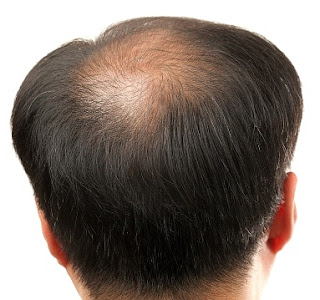Alopecia areata is a type of skin disorder that leads to loss of hair on the scalp. A person suffering from Alopecia areata may notice bald patches on some areas of the scalp. In case of severe Alopecia areata that hair loss may cause total baldness. The main cause of Alopecia areata is an autoimmune reaction. At times, the body’s immune system mistakenly attacks the body’s cells, thereby causing Alopecia areata. Usually, the hair follicles are attacked by the immune system, and hence hair loss occurs. Alopecia areata can also be inherited. People suffering from thyroid, vitiligo, and asthma run a higher risk of developing Alopecia areata.

Alopecia areata mostly affects adults between the ages of 30 and 60. In rare cases, toddlers may be affected by this problem. It is important to distinguish Alopecia areata from other hair shedding problems to treat it properly.
Alopecia areata symptoms include oval patches of baldness. The bald skin looks normal. A person might experience slight itching or irritation or burning sensation on the scalp. Few people tend to experience changes in their nails. The fingernails may split or form dents. In the case of Alopecia areata, the person may also lose the hair on his eyebrows, eyelashes, and armpits.
Alopecia areata symptoms:
1. Small patches of baldness on the scalp.
2. The skin of the bald patch will be smooth and normal.
3. Itching and burning sensation on the affected area.
4. In some cases, the person may experience dents or grooves on their fingernails.
5. If the problem is severe, the person may lose body hair too.
The problem can be easily diagnosed on the basis of the symptoms. A doctor can also diagnose Alopecia areata with the help of a scalp-skin biopsy test. There are no known and proven methods for preventing Alopecia areata.
Alopecia areata treatment:
On confirming that a person suffers from Alopecia areata, the doctor may advise various treatments. He may prescribe cortisone cream that helps in growing the hair. The person can also get a cortisone solution injected in his scalp. Topical minoxidil also helps in increasing the hair growth. One of the most effective treatments is to expose the affected area to ultraviolet light.
The Alopecia areata treatment usually depends on a number of factors like the age of the patient, hair loss amount, and the treatment’s side effects. Usually, the patient’s hair grows back within a year, but there are chances of recurrences and relapses too. If the Alopecia areata is not very severe, then the person may opt for hairpieces that can be used to cover the bald patches.
Alopecia areata is known to affect both, men and women. Some patients' condition may improve, or their problem may resolve on its own, but hair loss may be permanent. At times, a person may have to opt for more than one treatment for curing the problem.
(Contributed by Manisha)
Comments
Post a Comment
Comments posted on this blog are moderated and approved only if they are relevant, on-topic and not abusive. Avoid using links to your site/blog in the body of your comment unless it is highly relevant to the post.